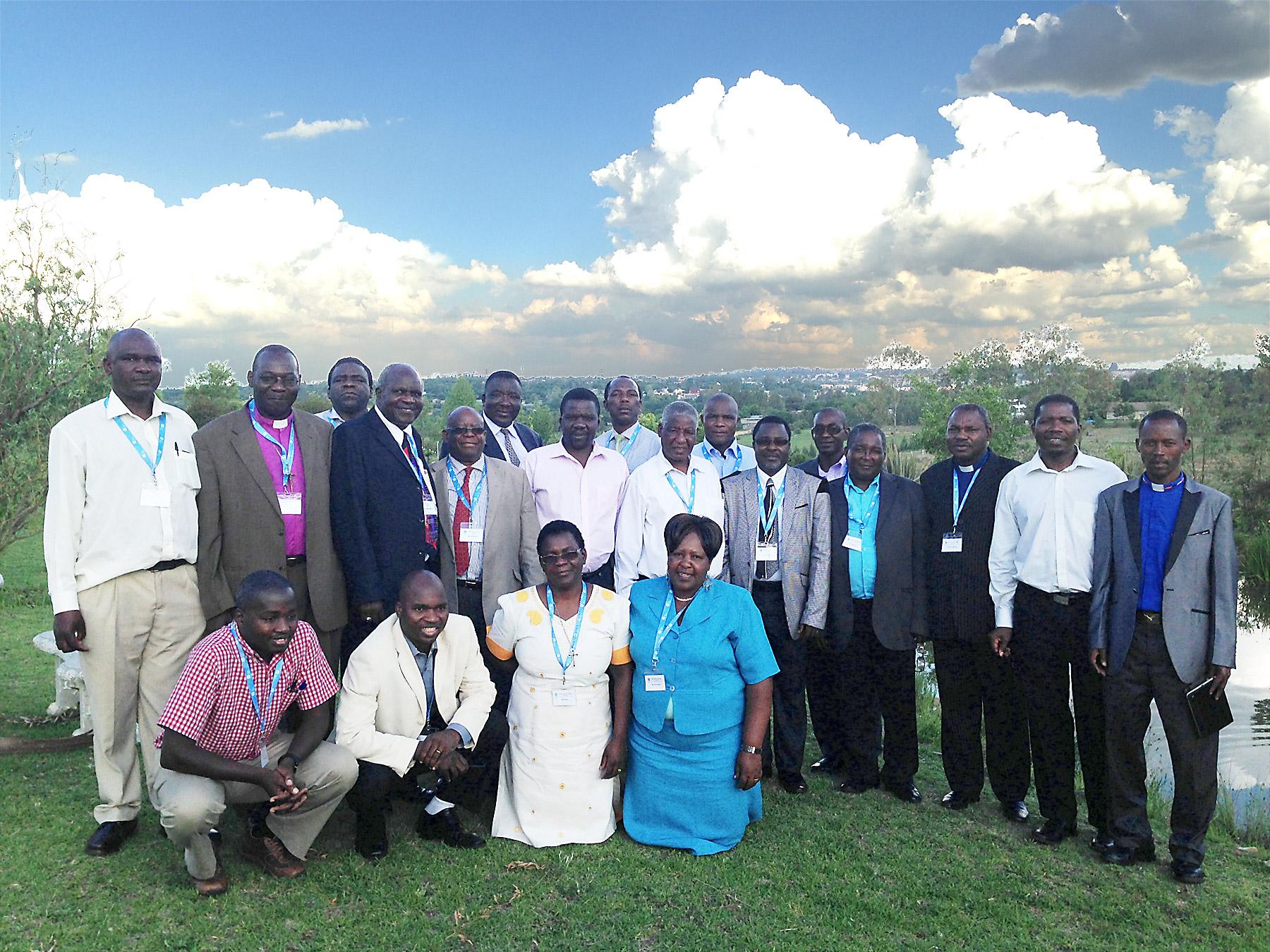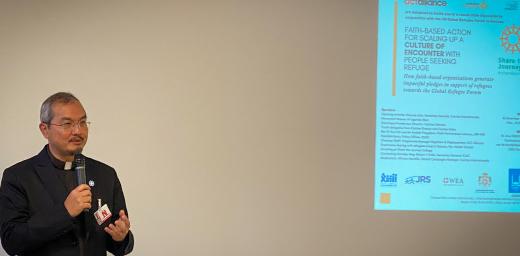Lutheran Leaders Affirm ‘Distinctive Marks of the Church’ as Basis for Equal Participation

Participants in the workshop on religion and development. Photo: LWF/I. Benesch
LWF Workshop on Religion and Development
(LWI) – Lutheran leaders from churches in Kenya, Namibia and Zimbabwe have affirmed that the distinctive marks of the church – “oneness, holiness, catholicity and apostolicity” – call it to be more participatory and empowering.
The consensus emerged at the end of an intensive three-day workshop ending on 6 December at Johannesburg, South Africa, on religion and development, organized by The Lutheran World Federation (LWF) Department for Theology and Public Witness.
The church leaders said the distinctive marks of the church are an important lens through which the church should view its role in the world, adding that these marks have certain implications regarding the way in which current church leadership structures are arranged.
“We will need to revisit our church structures and constitutions and equip our pastors and students with skills that enable them to analyze and identify the needs in society,” commented Bishop-elect Rev. Dr Veikko Munyika of the Evangelical Lutheran Church in Namibia.
Munyika said that the workshop had helped him to see the possibility of separating the responsibility of the bishop from that of the management board. “The bishop has to ensure the oneness of the church,” said Munyika.
Rev. Elitha Moyo, gender coordinator of the Evangelical Lutheran Church in Zimbabwe (ELCZ), emphasized that if oneness is a mark of the church, “then it is clear that we must consider everyone as equal in the church.” Furthermore, she stressed, there is a need for the church to empower women.
Deaconess Mary Sally Nyabaro, national women’s coordinator of the Evangelical Lutheran Church in Kenya, who is also a Member of Parliament, said the workshop was an eye-opening call to action for the church.
“Many women are afraid to go for pastoral training and do not understand [they have] the right to become pastors. We therefore need to ensure that we empower women socially, economically and in terms of education,” Nyabaro urged.
ELCZ General Secretary Mr Munatsi M. Dube noted that the workshop had also stimulated the church leaders to revisit their strategic planning processes related to development work to allow for good governance.
“Such a comprehensive approach will promote better relationships between clergy and laity. We need to overcome the ‘them’ and ‘us’ syndrome so that we truly become one church based on the priesthood of all the baptized,” he said.
Rev. Dr Kenneth Mtata, LWF study secretary for Lutheran Theology and Practice, who led the workshop, emphasized the need to bring together theological and sociological understanding to strengthen the church’s capacity as a credible actor in political, economic and social spheres.





